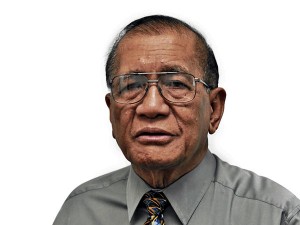
BELLOSILLO says the July 2 seminar intends participants to refocus and reprioritize their life to optimize their odds of long-term survival
Many heart attack survivors fear that any form of exercise, including sex, could land them back in the hospital or worse, in the graveyard.
But according to one of the country’s foremost authorities on cardiac rehabilitation, the chance of this to happen is surprisingly minimal. In fact, patients should be encouraged to start exercising a few days after this life-changing event.
“While a heart attack – also called a myocardial infarction, or MI – is definitely frightening, survivors should not be scared to try any form of cardiovascular exercise as this has a favorable effect on heart function. They should realize that the heart will become better with exercise sooner and with continued exercise over a longer period of time,” said Dr. Adolfo Bellosillo who heads the Makati Medical Center’s Cardiac Rehabilitation and Preventive Cardiology Unit.
Cardiac rehabilitation is a program that helps those who’ve had a heart attack restructure their lives and prevent them from having another attack or to prevent their current condition from worsening.
Bellosillo, who is founder and president of the Foundation for Lay Education on Heart Diseases, identified exercises like swimming, cycling, stationary biking or rowing as very effective in the recovery process. Furthermore, he added that if the survivor is able to perform these exercises, then it is also all right for them to resume sex.
“Why not? Surviving a heart attack should not keep the person from enjoying sex once more since the risk of having a heart attack during sex is extremely low – as long as they do it with their usual bed partner,” Bellosillo said. He cited a study that found illicit sex as particularly hazardous to heart patients (of the 1,000 heart attack sufferers who died of heart attack during sex, 80 percent were cheating).
He explained that if the person just had a heart attack, the last thing he or she needs is to laze around and do nothing.
“The best chance of recovering, especially for stable patients is to get back on track with exercise as soon as possible. This may run counter to the usual advice for patients not to move for at least a month after a heart attack. There’s also the usual practice to immediately discharge the ‘uncomplicated’ heart attack patient without even enrolling them to some sort of cardiac rehabilitation program,” the doctor noted.
Bellosillo said people who started an exercise program a few days after having a heart attack showed much better performance than those who waited a month or more.
“In fact, patients who are still in hospital beds should be given exercises as simple as letting their arms fold if they are still too weak or still immobile,” he added.
Smaller risk
According to Bellosillo, survivors who regularly exercise experience a relatively smaller risk of getting another heart attack after periods of exertion as compared with their counterparts who didn’t get as much regular physical activity before.
“This means the fitter one gets, the lower that person’s risk of succumbing to a heart attack triggered by physical activity. Besides, keeping busy will help survivors heal faster than laying around feeling sorry for themselves. Always remember, you already survived a heart attack, don’t risk another,” he reminded.
Bellosillo said he will explain more of these interesting developments in heart care in the July 2 seminar titled “Is There Life After a Heart Attack? (Adding Years to Life and Life to Years),” organized by the Makati Medical Center’s Cardiac Rehabilitation and Preventive Cardiology Unit in cooperation with the FLEHD.
He said that the whole-day (8 a.m. to 5 p.m.) free seminar expects heart attack survivors and those who just underwent heart surgery as well as other interested individuals especially those suffering from high blood pressure to attend the event that will be held at the 8th floor, Multipurpose Hall of the Makati Medical Center’s new building.
Bellosillo will be joined by other experts who will discuss specific topics like how the buildup of fats in one’s artery walls develop in the first place (this condition, called atherosclerosis, is regarded as the root cause of heart attack and stroke) as well as guidelines for survivors on which food to eat.
A unique musical presentation featuring mezzo soprano Jai Sabas Aracama and the UP Concert Chorus will be also held after the seminar.
“Considering the limited space of the venue, we definitely appreciate interested participants to make advance registration at the Makati Medical Center’s Heart Station or by calling 888-8999 (local 3311 or 3320) or by e-mailing me at nobello@info.com.ph,” Bellosillo requested.